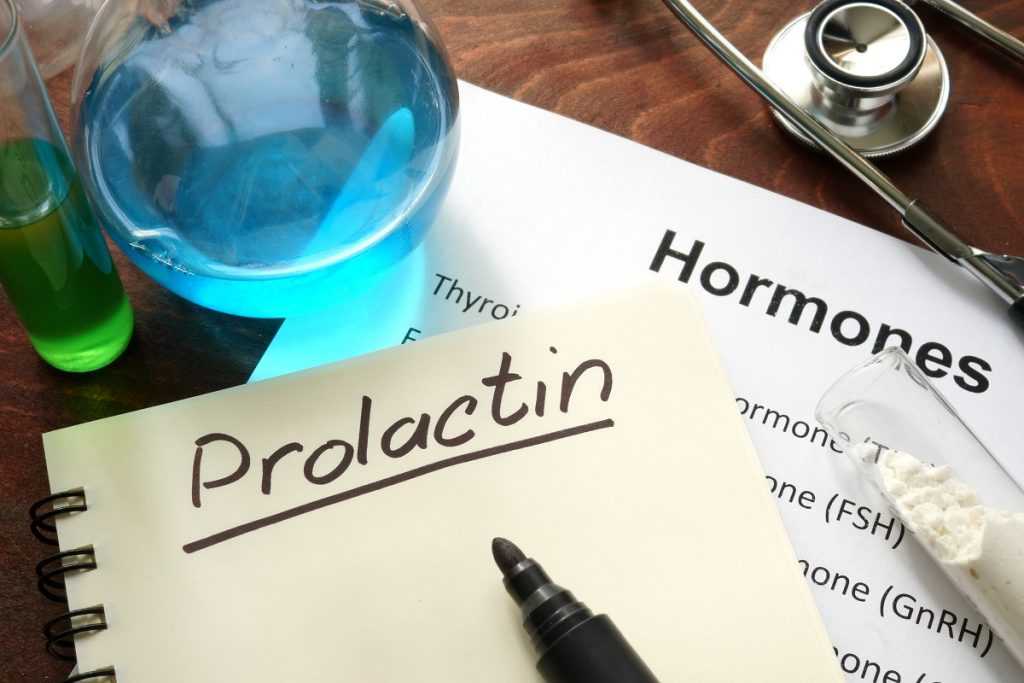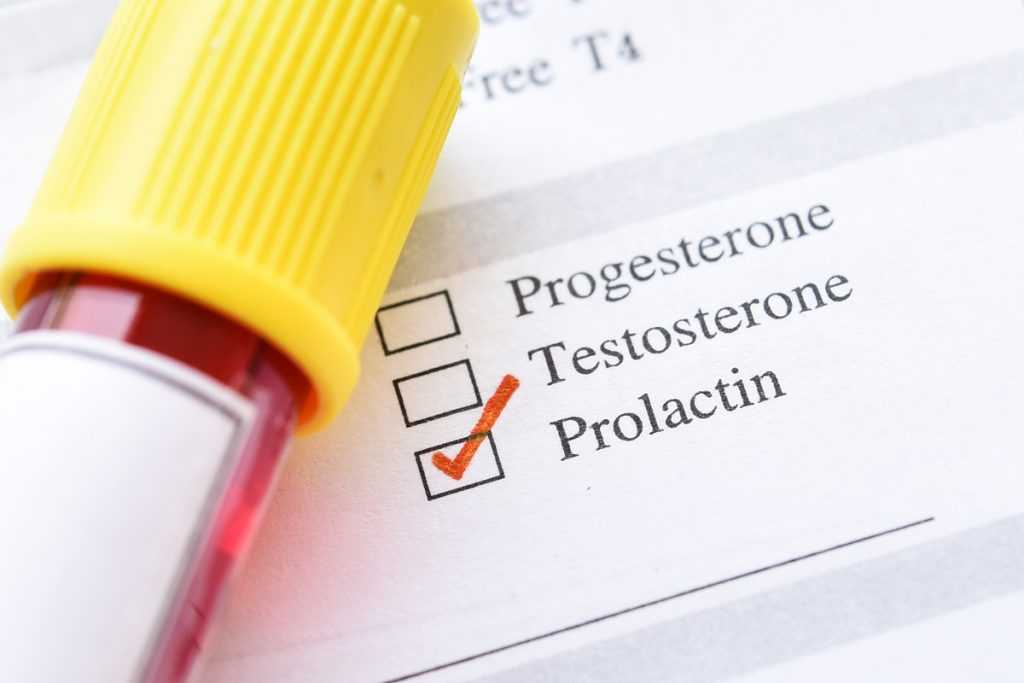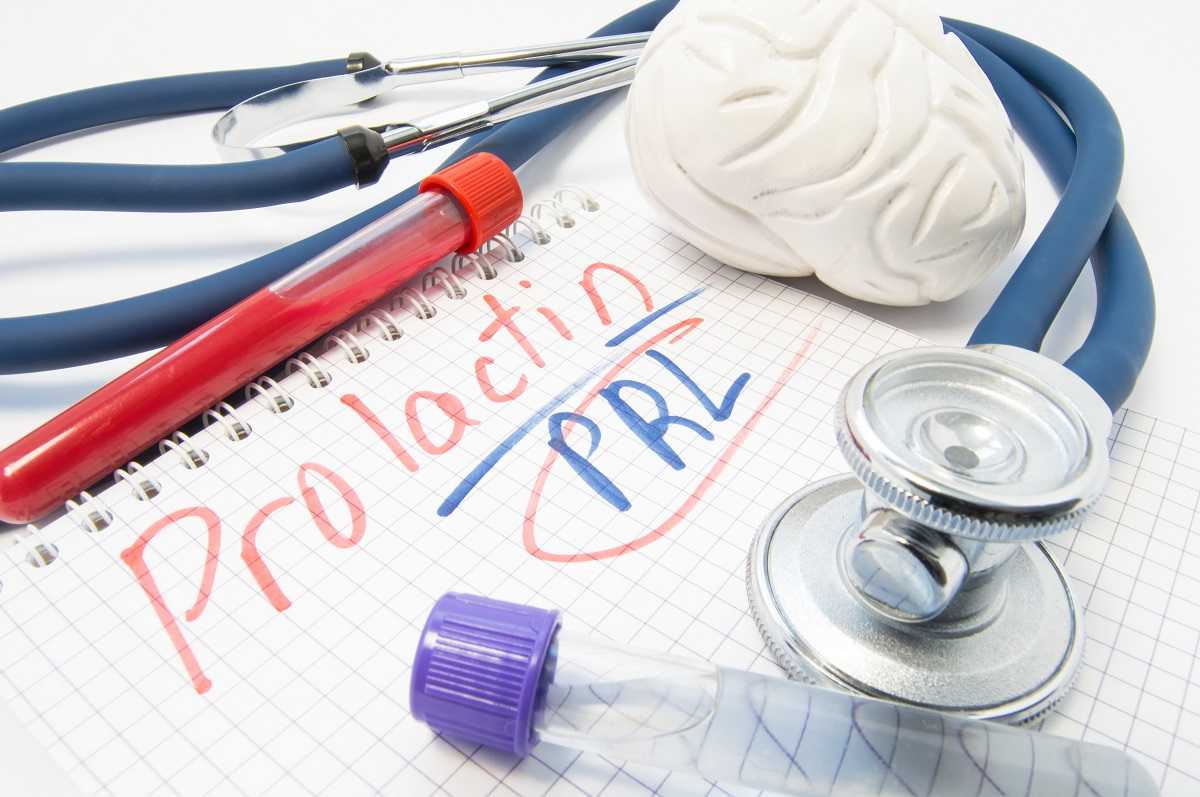Prolactin is a hormone secreted by the anterior pituitary gland and plays a crucial role in the regulation of lactation and reproductive functions in both males and females. Prolactin levels are tightly regulated by complex feedback mechanisms that involve the hypothalamus, pituitary gland, and target organs. Any disruption in these feedback mechanisms can lead to alterations in prolactin secretion, which can have significant effects on the body. This essay will discuss the role of prolactin in the male and female endocrine systems and how high or low levels may impact their bodies.
Prolactin in the Female Endocrine System
Prolactin is one of the key hormones involved in the regulation of lactation in females. During pregnancy, prolactin levels increase, and this increase is maintained throughout lactation. Prolactin stimulates the development and growth of mammary glands, which are essential for milk production (1). It also regulates the production of milk by promoting the synthesis and secretion of lactose, proteins, and lipids from the mammary glands (2). Prolactin also has a suppressive effect on ovulation by inhibiting the secretion of gonadotropin-releasing hormone (GnRH) from the hypothalamus, which subsequently suppresses the secretion of luteinizing hormone (LH) and follicle-stimulating hormone (FSH) from the pituitary gland (3).

In addition to its role in lactation, prolactin is also involved in the regulation of other reproductive functions in females. Prolactin has been shown to modulate the secretion of ovarian steroids, which are essential for follicular development, ovulation, and implantation (4). High levels of prolactin have been associated with menstrual irregularities, infertility, and decreased libido (5).
Hyperprolactinemia, or high levels of prolactin, can occur due to various factors such as pituitary tumors, medications, and hypothyroidism. Hyperprolactinemia can have significant effects on the female body, including amenorrhea, galactorrhea, infertility, and decreased libido (6).
Hyperprolactinemia-induced suppression of ovarian function can lead to anovulation, which can result in infertility (7). In severe cases, pituitary tumors can cause visual disturbances and headaches (8).
Hypoprolactinemia, or low levels of prolactin, have been associated with decreased lactation and insufficient milk production in lactating mothers (9). However, hypoprolactinemia is rare, and its clinical significance is not well established.
Prolactin in the Male Endocrine System
In males, prolactin plays a role in the regulation of reproductive functions, although its precise function is not well understood. Prolactin receptors are present in the testes, and studies have suggested that prolactin may play a role in the regulation of testosterone production and spermatogenesis (10).

Hyperprolactinemia in males is usually caused by pituitary tumors, medications, or kidney failure. Hyperprolactinemia can lead to decreased testosterone production, which can cause infertility, decreased libido, and erectile dysfunction (11). Prolactin has also been implicated in the development of gynecomastia, which is the enlargement of breast tissue in males (12). High prolactin levels have been observed in patients with idiopathic gynecomastia, and treatment with dopamine agonists, which decrease prolactin levels, has been shown to improve symptoms (13).
Hypoprolactinemia in males is rare, and its clinical significance is not well established.
Conclusion
In conclusion, prolactin is a hormone that plays a significant role in the regulation of lactation and reproductive functions in both males and females. Prolactin levels are tightly regulated by complex feedback mechanisms, and any disruption in these mechanisms can have significant effects on the body. High levels of prolactin, or hyperprolactinemia, can lead to menstrual irregularities, infertility, decreased libido, gynecomastia, and other symptoms. Low levels of prolactin, or hypoprolactinemia, can lead to decreased lactation in lactating mothers. Understanding the role of prolactin in the male and female endocrine systems is essential for the diagnosis and treatment of prolactin-related disorders.
If you want to learn more about hormonal treatment options for prolactin or if you have any additional questions about this topic, contact the HRT Doctors Group today! Our team specializes in hormonal therapies and can help you find the right solution for your needs. We will do our best to answer your questions and help you find your way to hormone balance and well-being.
Questions and Answers
Prolactin is a hormone produced by the anterior pituitary gland in the brain. It plays a key role in reproductive and metabolic processes, as well as immune regulation.
Normal prolactin levels typically range from 2-18 ng/mL for males and 2-25 ng/mL for females, though these ranges may vary slightly depending on the laboratory.
In females, prolactin primarily regulates lactation (milk production), supports breast development during pregnancy, and influences reproductive health.
In males, prolactin is involved in reproductive health, including the regulation of testosterone levels and spermatogenesis, although its exact functions are less defined compared to females.
Hyperprolactinemia can be caused by pituitary tumors (prolactinomas), medications (e.g., antipsychotics, antidepressants), hypothyroidism, stress, and certain medical conditions like kidney or liver disease.
Symptoms in females may include irregular or absent menstrual periods, infertility, galactorrhea (milk leakage not related to breastfeeding), and decreased libido.
Symptoms in males may include decreased libido, erectile dysfunction, infertility, gynecomastia (enlargement of breast tissue), and sometimes galactorrhea.
Diagnosis typically involves a blood test to measure prolactin levels, and if elevated, additional tests like MRI of the pituitary gland may be done to check for a prolactinoma or other abnormalities.
Treatments may include dopamine agonists like cabergoline or bromocriptine, which lower prolactin levels. Surgery or radiation may be required for larger tumors. Addressing underlying causes, like hypothyroidism, is also essential.
Low prolactin levels are rare and usually have minimal clinical impact. However, in some cases, it may affect the immune system, reproductive health, and lactation in females.
